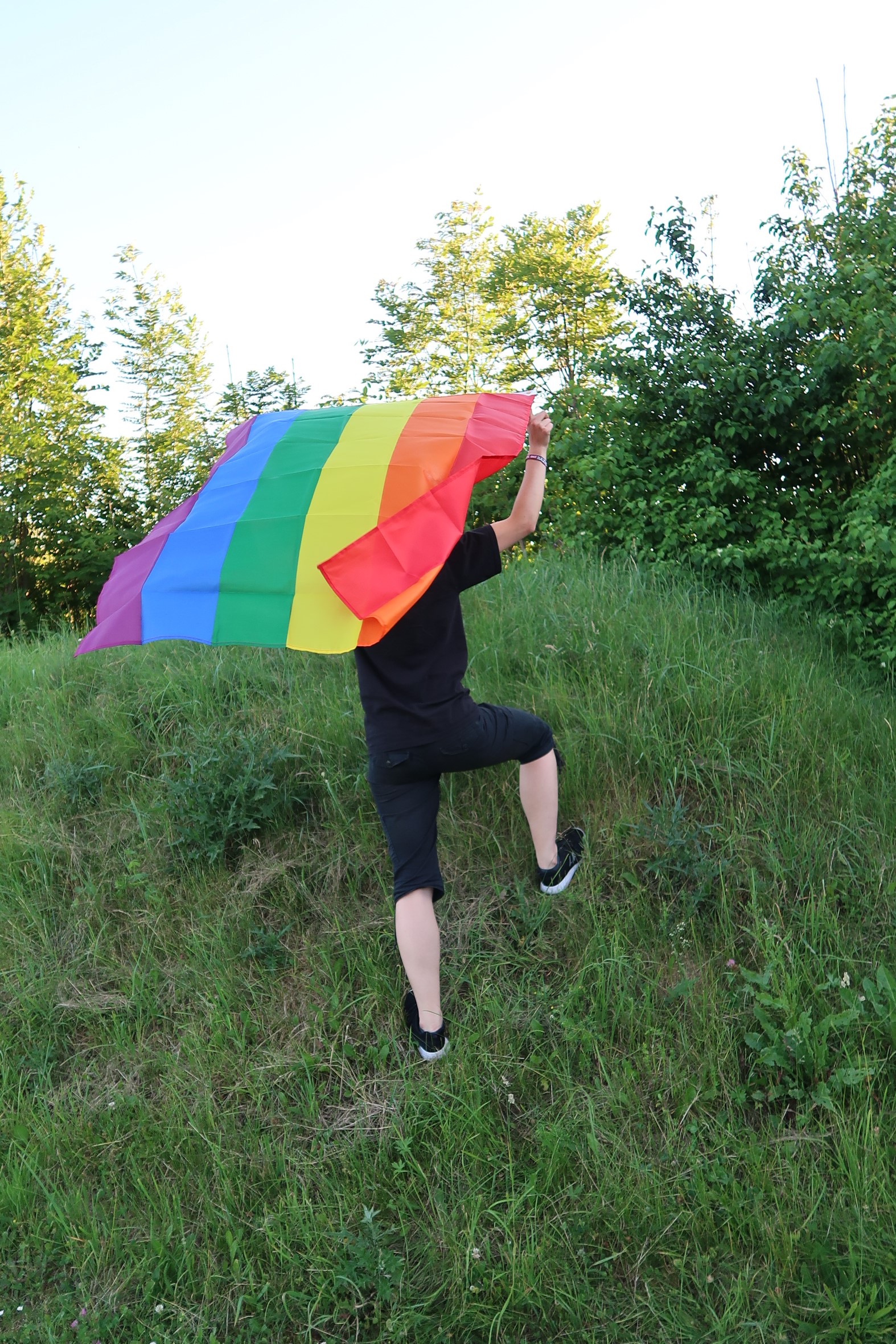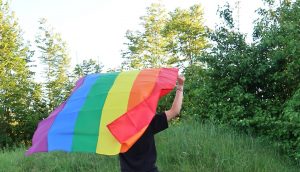Samedi, 10-06-2017
Il est samedi, le 06 juin, 2h de l’après-midi dans un  foyer pour demandeurs d’asile.
foyer pour demandeurs d’asile.
On se trouve dans une petite chambre équipée de deux lits, avec une seule fenêtre et une grande armoire en acier. Sur les murs, il y a des photos de famille et un calendrier de Ramadan.
Mon interlocuteur s’appelle Moussa, 30 ans, sénégalais et sans statut officiel en Allemagne.
«L’asile ne s’obtient pas facilement.»
eMAG: Est-ce que vous pourriez nous dire d’où vous venez?
Moussa: Bon, je m’appelle Moussa et je suis sénégalais, de Dakar, notre capitale. Je suis ici en Allemagne depuis un an et quelques mois.
eMAG: C’est longtemps, surtout si l’on n’a pas eu de chance, en ce qui concerne son statut. Avez-vous eu des problèmes d’obtenir l’asile?
Moussa: Oui, naturellement, j’ai eu des petits problèmes avec mon statut. L’asile ne s’obtient pas facilement. Surtout nous, les Africains, on a des difficultés actuellement. Un problème de statut se pose, mais quand-même, ça ne nous empêche pas de vivre.
«Les gens pensent que l’Afrique, c’est un pays.»
eMAG: Vous parlez de «nous». Avez-vous rencontrés beaucoup de compatriotes ici?
Moussa: Oui, j’ai connu pas mal d’Africains, de façon générale. Des Nigérians, des Maliens, des Sénégalais, des Gambiens. Ce sont les nationalités que j’ai rencontré ici.
eMAG: Ce sont beaucoup de nationalités et surtout beaucoup de personnes qui vivent ensemble dans un endroit très étroit. Est-ce que cela ne cause pas des problèmes? Ou est-ce qu’on trouve facilement des amis?
Moussa: Bon, des fois cela cause des problèmes d’incompréhension, de culture différente. Ici, beaucoup de gens pensent que l’Afrique, c’est un pays, alors que c’est un continent avec 54 pays très différents. La plupart du temps, on arrive quand-même à se comprendre, aussi parce qu’on est obligé de vivre ensemble, donc mieux vaut vivre.
Les amis, en général, se trouvent facilement, surtout quand vous êtes du même pays, car cela vous rend automatiquement des frères. Mais c’est aussi facile d’en avoir avec ceux qui habitent dans les autres pays africains, il y a de la sympathie car vous partagez une origine commune et vous êtes ici pour le même bût, pour la même raison, pour les mêmes causes. Il y a un sentiment de solidarité.
«Une très petite partie des Allemands sont des racistes.»
eMAG: Les allemands, est-ce que vous vous comprenez bien avec eux ou est-ce qu’il y a eu des problèmes de racisme?
Moussa: Non, je suis là depuis un an, mais je n’ai jamais eu des problèmes de racisme. Sauf un jour on est allé à un jeu de foot et ce que l’arbitre avait fait là, c’était carrément du racisme. Ça a même choqué les allemands qui étaient là-bas, je dirais donc que même s’il y a du racisme ici, ce n’est pas tout le monde qui l’est! En fait il n’y en a qu’une très petite partie qui est raciste, mais personellement, je ne l’ai pas encore rencontré. Espérons que cela ne change pas, Inch’Allah.
eMAG: Est-ce que vous pourriez encore nous donner quelques details sur votre vie quotidienne au Sénégal, votre famille, votre métier, la situation linguistique?
Moussa: Bon, au Sénégal, il y a une vingtaine de langues ou plus, mais la langue la plus parlée, c’est le Wolof, c’est ce qu’on pourrait appeler ma langue maternelle.. La majeure partie des sénégalais ne sont pas des Wolof dans le sens éthnique mais parlent quand-même le Wolof, parce que c’est notre langue nationale.
Pour le boulot, je suis un mécanicien et, c’est ainsi que je suis parvenu à gagner ma vie au Sénégal.
«Ce n’était pas ‘l’appel’ de Merkel.»
eMAG: Quand vous êtes arrivés en Allemagne, cela vous a pris beaucoup de temps? Quels ont été vos expériences?
Moussa: Bon, cela ne m’a pas pris beaucoup de temps, je suis passé par un autre pays européen et, après quelque temps là-bas, j’ai décidé de venir en Allemagne, pour déposer ma demande d’asile ici.. Ça ne m’a pas pris beaucoup de temps: j’ai pris l’avion.
eMAG: Beaucoup d’Allemands pensent que la politique de la «porte ouverte» de notre chancelière a été une des raisons pour lesquels nous sommes un des pays de destination privilégiée des réfugiés. Est-ce que vous aviez des amis qui vous ont «conseillé» de venir en Allemagne, est-ce que c’était peut-être pour des raisons économiques?
Moussa: Non, ce n’était ni l’appel de Merkel ni des raisons économiques. En fait, j’ai choisi un pays où je ne connaissais pas de Sénégalais, pas d’africains. Il y en a des milliers en Italie, en France, partout en Europe. J’ai voulu venir en Allemagne pour me cacher ici, pour sortir des radars. Je ne m’attendais pas à me trouver au milieu d’africains comme ça.
«Le portable, c’est comme l’eau qu’on boit.»
eMAG: On pourrait donc dire que vous avez fait de mauvaises connaissances et que vous avez décidé de leur échapper? Éviter leurs amis, leurs réseaux, leur mauvaise influence etc?
Moussa: Voilà. Je me suis réfugié pour ma propre sécurité, je ne suis pas un réfugié économique. Comme je l’ai déjà dit, j’avais un boulot au Sénégal.
eMAG: On a beaucoup parlé du rôle de l’ordiphone et des réseaux sociaux pour les réfugiés du 21ème siècle. Quels étaient vos expériences durant votre réfuge votre fuite et après?
Moussa: Bon, si je prends l’exemple de mon téléphone, cela me permet de rester en contact avec qui je veux. Avoir les nouvelles de ma famille, connecter ici et ailleurs. Au 21ème siècle, le portable est comme l’eau qu’on boit: on ne doit plus en manquer. C’est un outil de vie, tout le monde sait que le portable n’est plus un luxe. J’en ai besoin pour savoir où est-ce que je vais, ta famille pour savoir comment tu vas. Le portable, les réseaux sociaux, ils sont nécessaires pour rester en contact avec tout le monde, la famille, les amis, les gens qui se soucient de nous.
«La nostalgie est là, tout le temps.»
eMAG: Le sujet de notre prochaine édition papier sera le „throwback“, les souvenirs et la nostalgie. Sûrement, c’est un sentiment que vous connaissez?
Moussa: Bon, je pense, même sans devoir poser des questions, tout le monde sait que c’est difficile de vivre séparé de sa famille. Des fois, tu as vraiment envie d’aller à l’aéroport et de prendre le prochain avion. Parce que la famille représente infiniment plus que de vivre en Allemagne. Donc, la nostalgie est là, tout le temps. Mais, à long terme, tu t’y habitues, et ce qui nous aide, ce sont les réseaux sociaux comme WhatsApp. Il y a mille moyens de rester en contact avec sa famille, mais le téléphone ne peut pas remplacer le fait d’être côte à côte avec quelqu’un. On essaie de faire avec les moyens qu’on a, mais on est aussi des croyants, donc, on va tout simplement accepter notre destin et essayer de nous en sortir de la façon la plus digne possible.
eMAG: Parlons de la religion. Est-ce que vous avez l’impression de pouvoir l’exprimer et la vivre librement en Allemagne?
Moussa: Oui, je la vie librement ici, sans contraintes. Et vous savez, avoir une religion différente de la majorité ne t’empêche pas de t’intégrer. Avant tout, la foi, elle est en toi. Il n’y a pas besoin de faire de la publicité, c’est en toi, dans ton cœur, dans ton esprit. Je n’ai jamais eu des problèmes, quel que soit l’endroit où je suis, au contraire, il m’est arrivé que quelqu’un me voit prier, s’approche de moi parce qu’il voit: ça, c’est aussi c’est un musulman. Ici, je n’ai trouvé que du respect mutuel, de la tolérance.
«Mon aspiration, c’est d’être libre.»
eMAG: Dernière question: Quelle est votre perspective pour l’avenir?
Moussa: Bon, mon but, c’est de vivre en paix, de pouvoir gagner ma propre vie, là il n y a pas de différences entre un allemand et un réfugié. Un allemand, par contre, s’il veut travailler, il le fait, s’il veut voyager, il le fait. Ça, c’est mon aspiration, d’être libre, de faire ce que je veux, d’aller où je veux, tout en respectant la loi, bien sûr.
eMAG: Bonne chance. Merci pour l’interview.
Moussa: De rien.
(texte abrégé)
Interview conduit par Niklas Schmidt
Photos prises à Friedberg par Niklas Schmidt

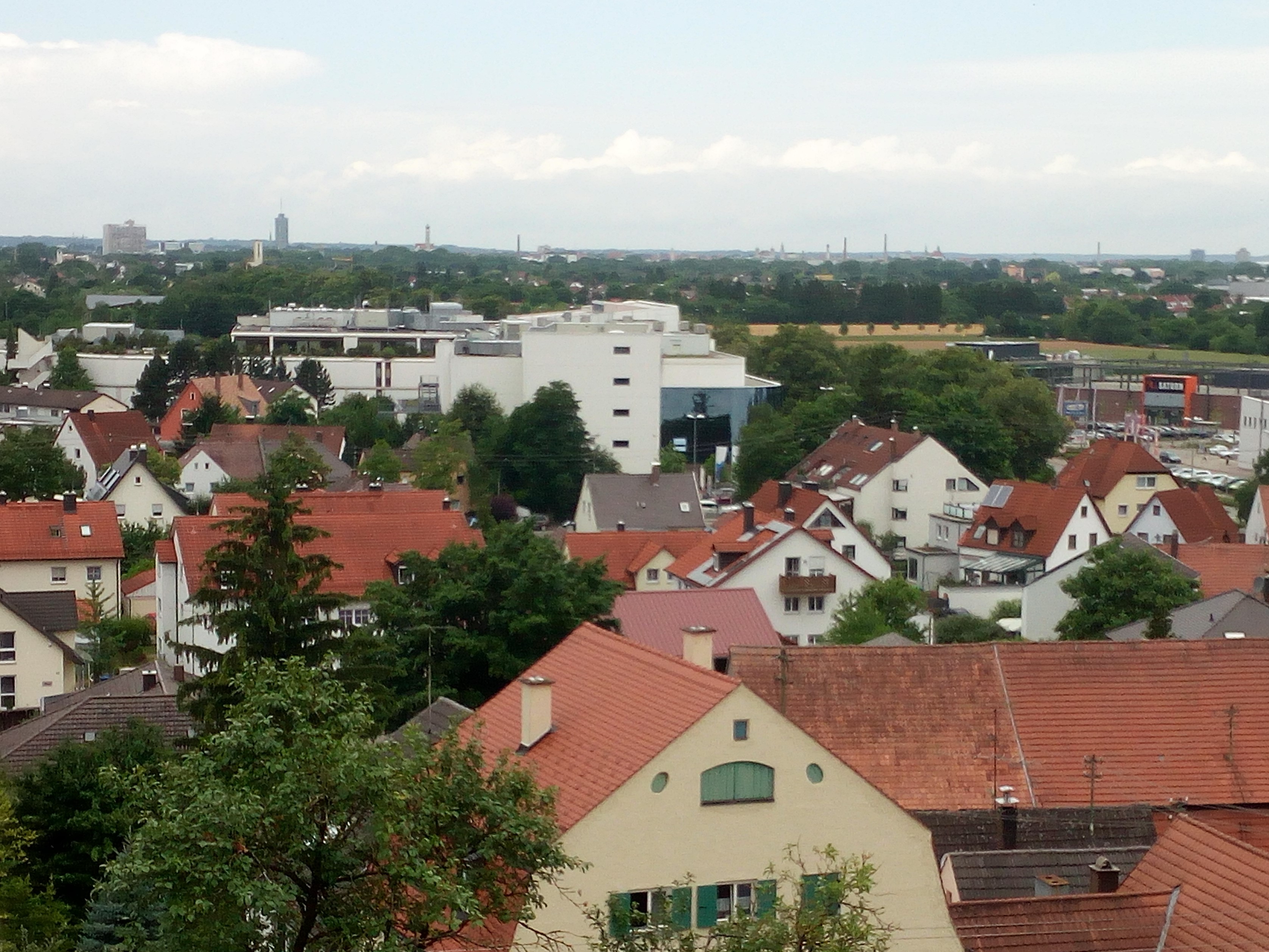
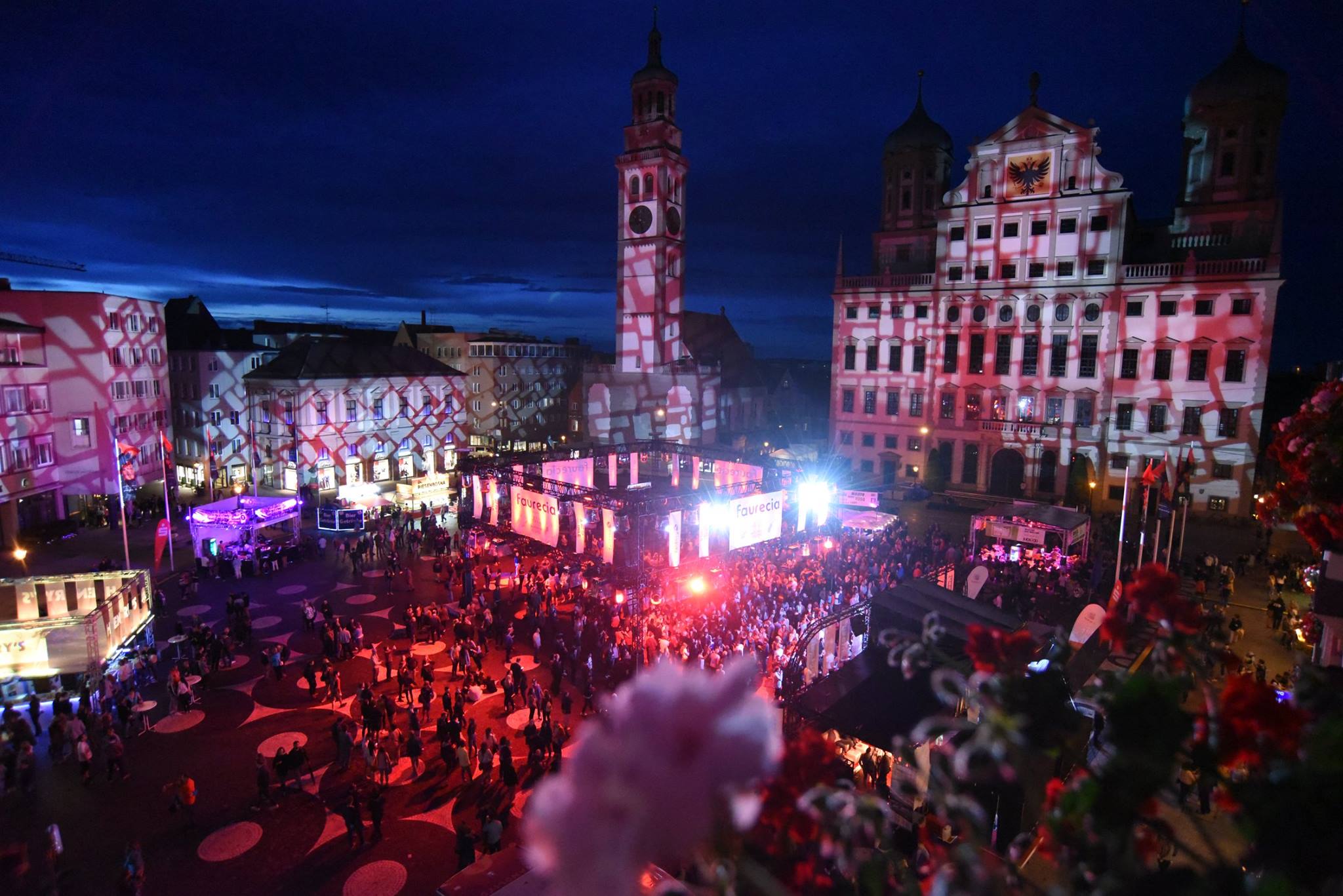
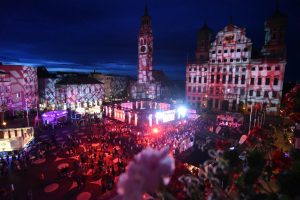 e a few convincing reasons. But first of all, some of you may not even know what the Augsburger Sommernächte are…
e a few convincing reasons. But first of all, some of you may not even know what the Augsburger Sommernächte are…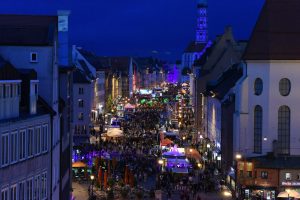 The Sommernächte also gives you the chance to meet new people. Everybody’s in a good mood and always ready for a chat! Apart from this social aspect, what is really cool is that the Neue Szene presents newcomers. Not only young bands try to entertain the people with their music, but also poetry slammers who try to catch the listener’s attention with their own texts.
The Sommernächte also gives you the chance to meet new people. Everybody’s in a good mood and always ready for a chat! Apart from this social aspect, what is really cool is that the Neue Szene presents newcomers. Not only young bands try to entertain the people with their music, but also poetry slammers who try to catch the listener’s attention with their own texts.
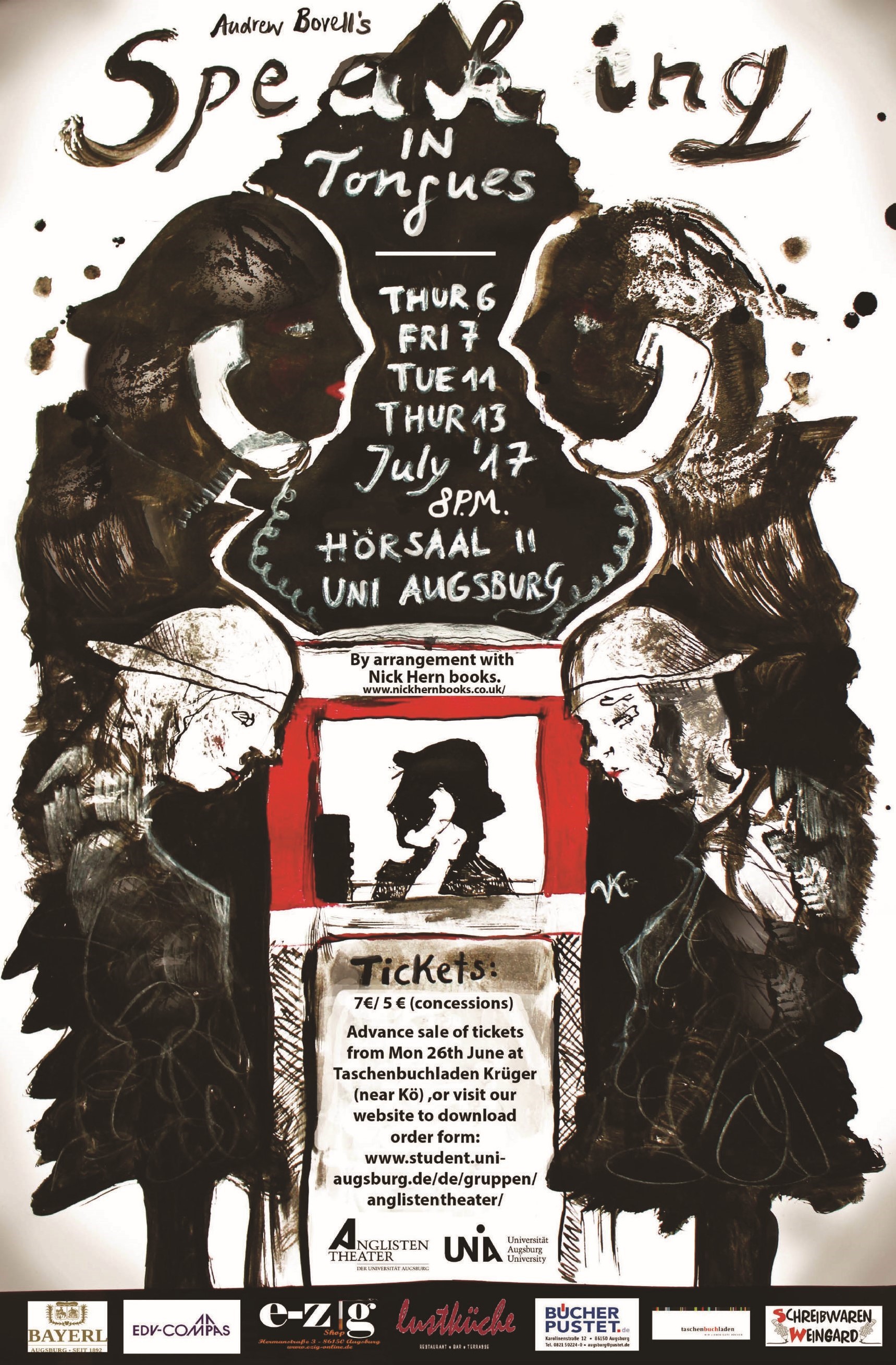
 On Thursday, 6th July, the Anglistentheater premiered their latest play “Speaking in tongues”, by Andrew Bovell.
On Thursday, 6th July, the Anglistentheater premiered their latest play “Speaking in tongues”, by Andrew Bovell.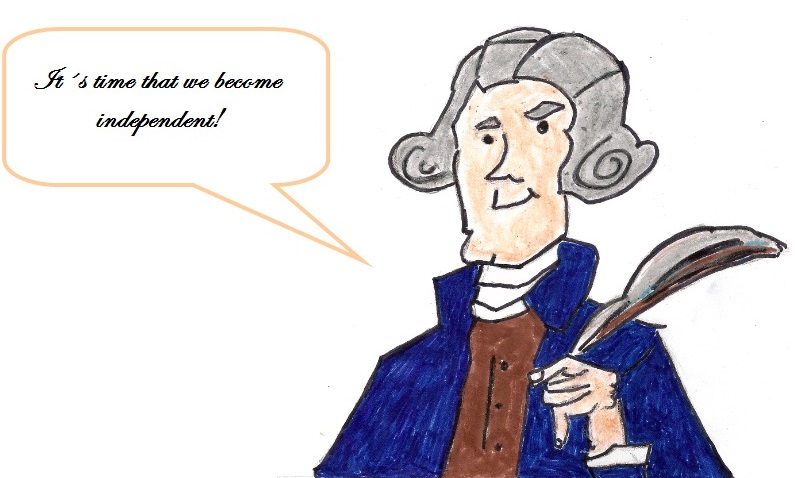
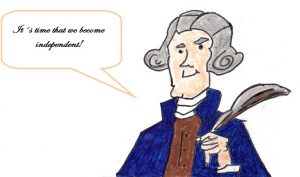
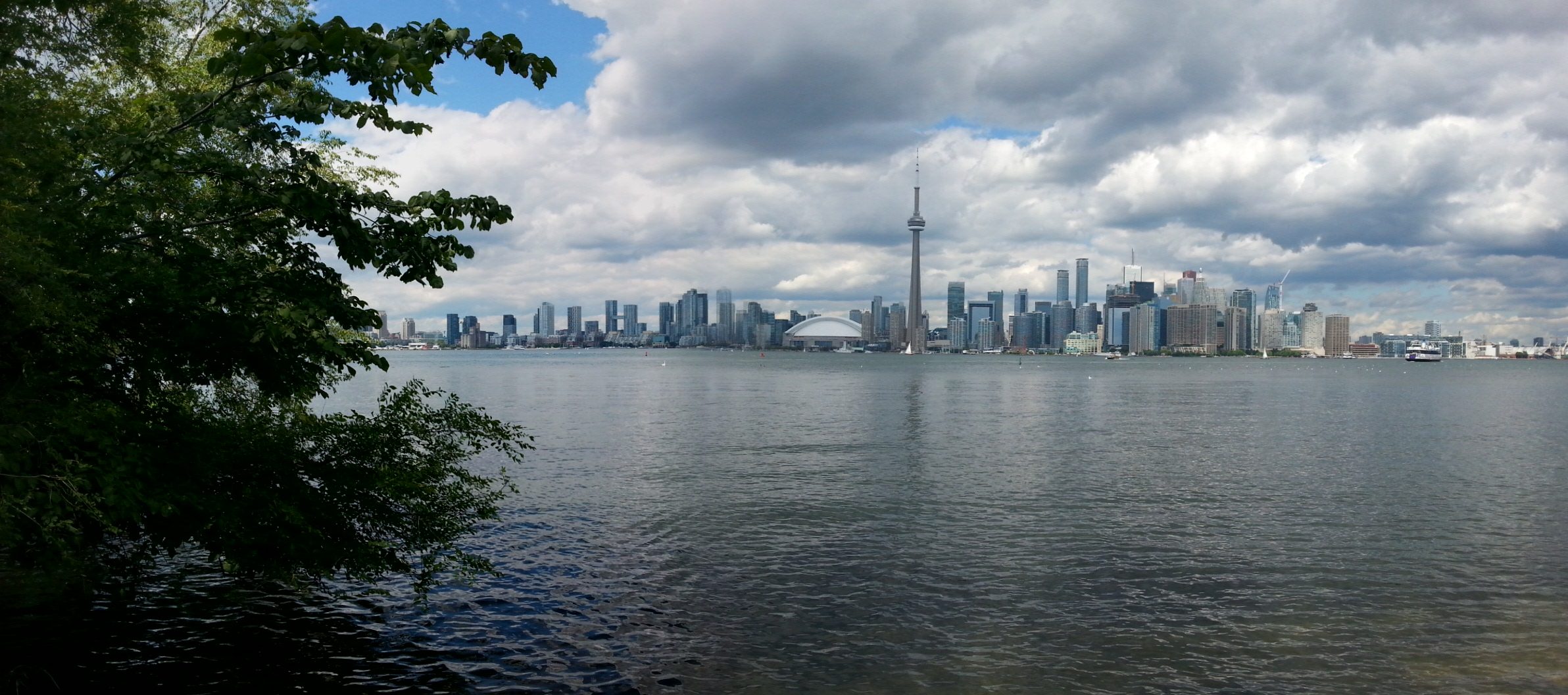

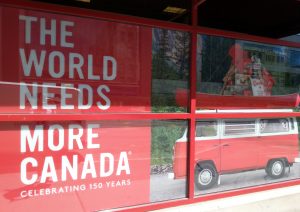

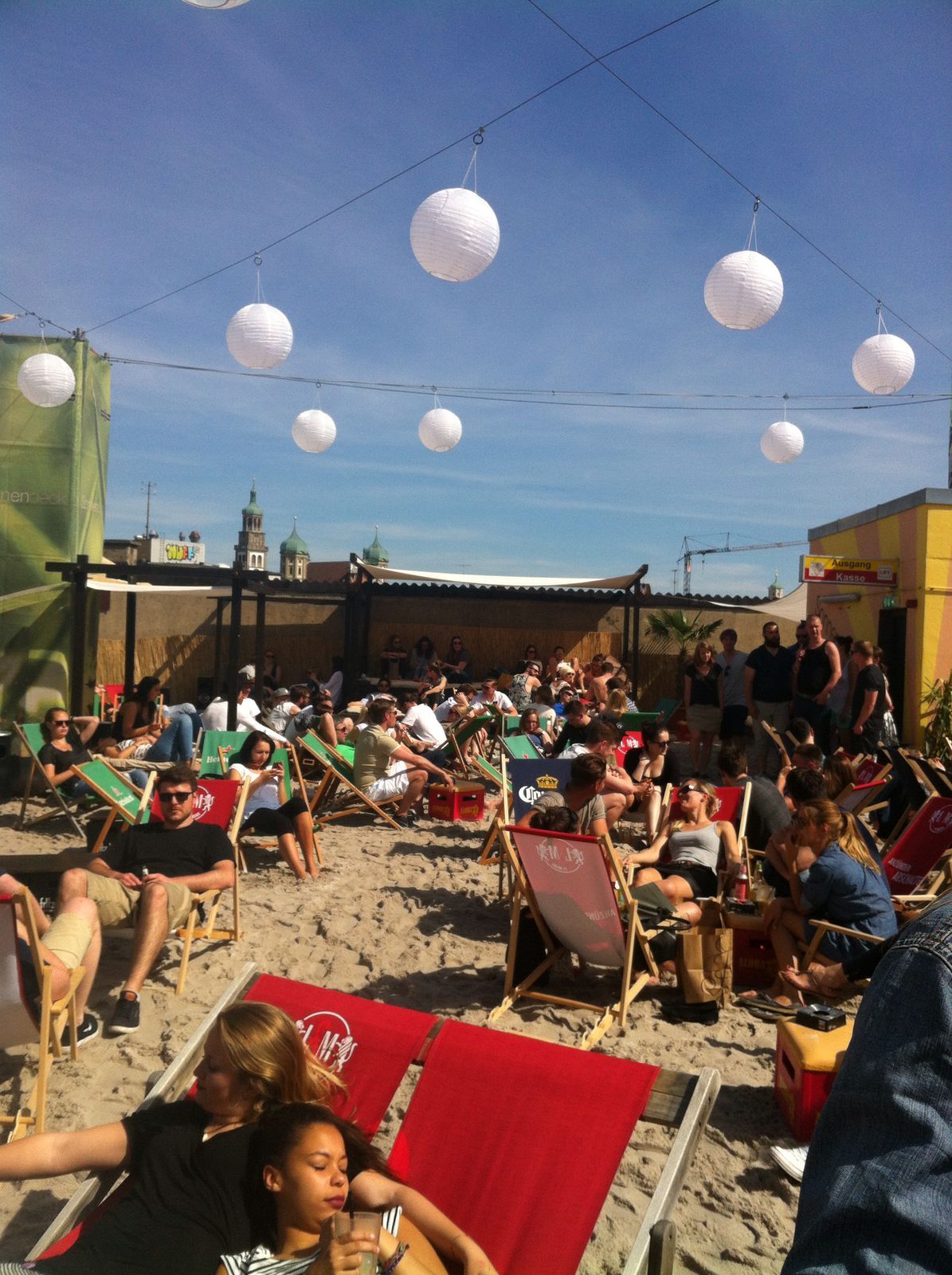
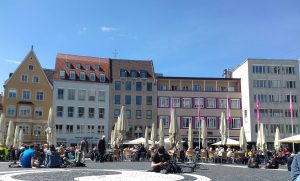 Are you still looking for cool things to do in Augsburg to enjoy this wonderful weather?
Are you still looking for cool things to do in Augsburg to enjoy this wonderful weather?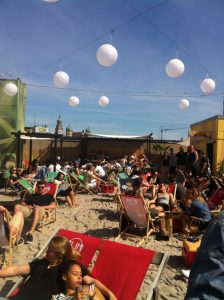 such as vegetarian cuisine, traditional Bavarianand pastries (I recommend their fries, which are really good!) Or you take your own food and have a picnic at the Wertach. Tip: take some home-made iced tea and impress your friends.
such as vegetarian cuisine, traditional Bavarianand pastries (I recommend their fries, which are really good!) Or you take your own food and have a picnic at the Wertach. Tip: take some home-made iced tea and impress your friends. and old, enjoy sunbathing, having barbecues or playing frisbee, badminton and volleyball.
and old, enjoy sunbathing, having barbecues or playing frisbee, badminton and volleyball.